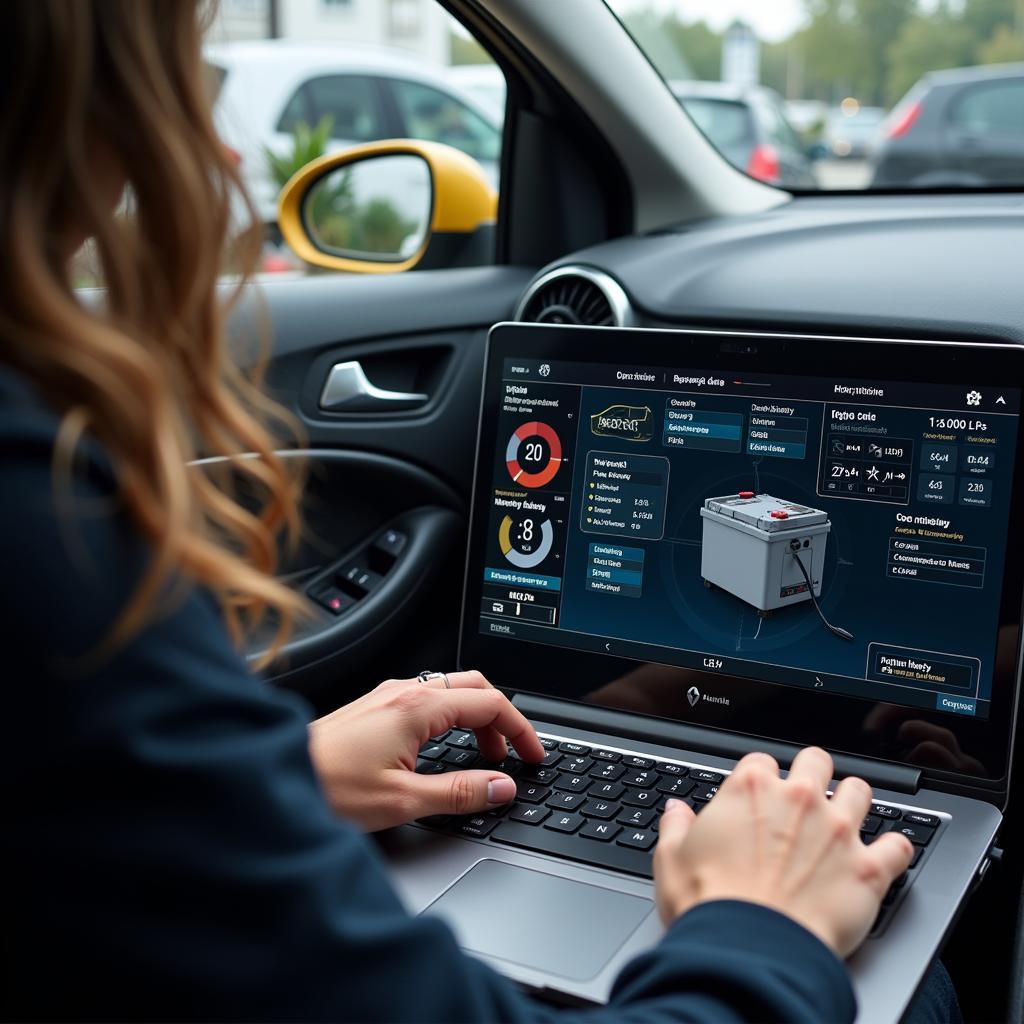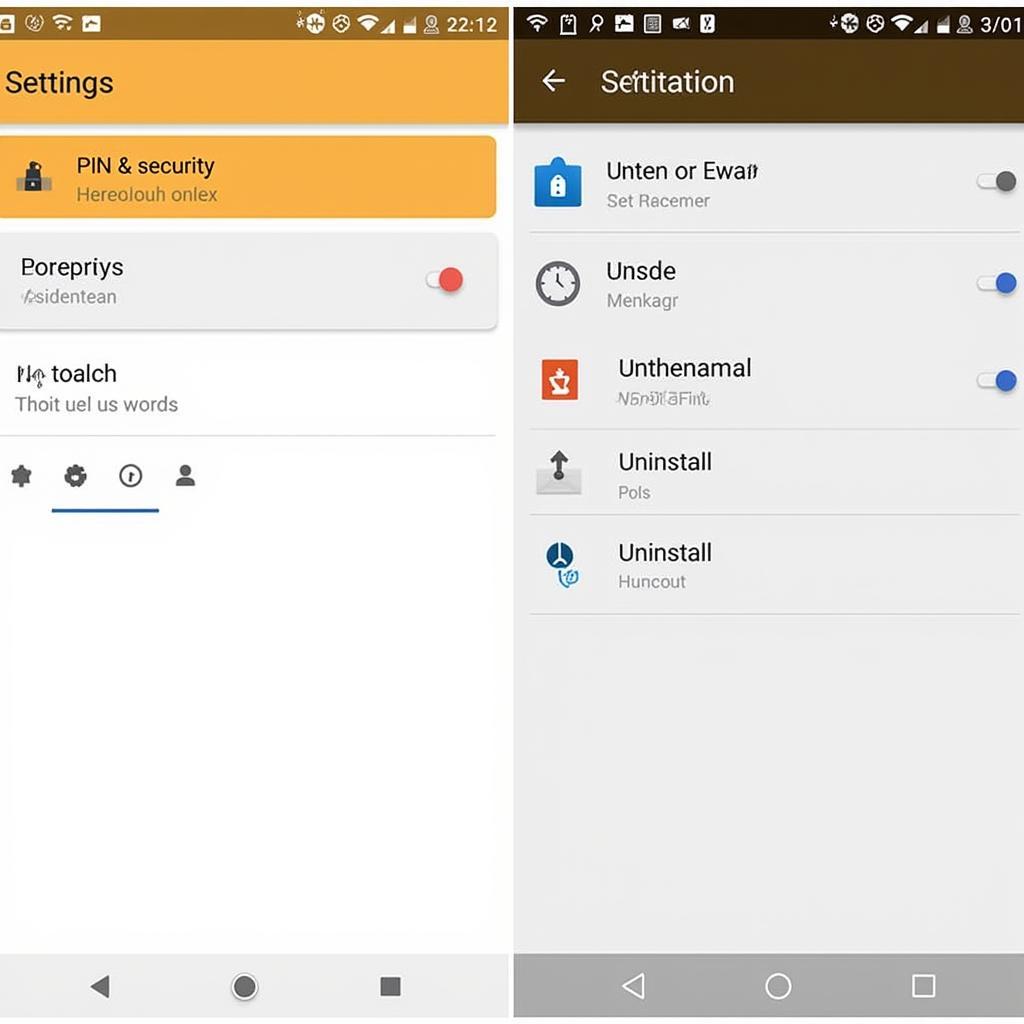Seeing the brake warning light illuminate on your Toyota Prius dashboard can be unnerving. While it might cause a moment of panic, understanding the reasons behind this warning and how to address them can save you from potential headaches down the road. This article will delve into the common causes of a brake warning light on a Prius, offer solutions, and guide you on when to seek professional help.
Understanding Your Prius’s Brake System
Before jumping into the causes of a brake warning light, it’s helpful to understand the basics of how your Prius’s braking system operates. Unlike traditional gasoline-powered cars, the Prius utilizes a combination of regenerative braking and traditional hydraulic brakes:
- Regenerative Braking: A key component of the Prius’s hybrid system, regenerative braking captures the kinetic energy generated during braking and converts it into electricity to recharge the battery.
- Hydraulic Braking: Similar to conventional cars, this system uses brake fluid to activate the calipers and push the brake pads against the rotors, slowing down the vehicle.
The brake warning light is your Prius’s way of signaling a potential problem within either of these braking systems or related components.
Common Causes of a Brake Warning Light on a Prius
A glowing brake warning light can be triggered by various factors, ranging from simple oversights to more complex issues. Let’s explore the most frequent culprits:
1. Low Brake Fluid Level
One of the most common and easily fixable reasons for the brake warning light is low brake fluid. Brake fluid is the lifeblood of your Prius’s hydraulic braking system. Over time, brake pads wear down, and the brake fluid level naturally decreases.
Solution: Check the brake fluid level in the reservoir under the hood. If it’s below the minimum mark, add the recommended brake fluid type for your Prius model.
Pro Tip: If you find yourself adding brake fluid frequently, it could indicate a leak in the system, requiring immediate attention from a mechanic.
2. Worn Brake Pads
Brake pads are designed to wear down with use. When they become too thin, they trigger the brake warning light. This is a normal part of car maintenance.
Solution: Have your brake pads inspected by a qualified mechanic. If they are worn down to the recommended minimum thickness, they will need to be replaced.
3. Faulty Brake Light Switch
The brake light switch is a small component responsible for activating your brake lights when you press the pedal. A malfunctioning switch can not only prevent your brake lights from working but also illuminate the brake warning light.
Solution: A faulty brake light switch will need to be replaced. While a relatively inexpensive fix, it often requires the expertise of a mechanic.
4. ABS Issues
The Anti-lock Braking System (ABS) is a crucial safety feature that prevents wheel lockup during hard braking. If the ABS system encounters a problem, it can trigger the brake warning light.
Solution: Diagnosing ABS issues can be complex and usually requires a specialized scanner. It’s best to consult a qualified mechanic if you suspect an ABS problem.
5. Problems with the Regenerative Braking System
Since the Prius relies on both regenerative and hydraulic braking, issues within the regenerative system can also activate the brake warning light. This could be due to a problem with the hybrid battery, inverter/converter system, or other related components.
Solution: Diagnosing regenerative braking problems requires specialized knowledge and equipment. Contact a certified Toyota technician or a qualified hybrid specialist for assistance.
prius as vsc warning brake light
6. Faulty Sensors
Your Prius’s braking system incorporates several sensors that monitor various aspects like wheel speed, brake fluid pressure, and brake pedal position. A malfunctioning sensor can send erroneous signals, leading to the brake warning light illuminating.
Solution: Identifying a faulty sensor requires diagnostic tools. A mechanic can pinpoint the problematic sensor and advise on replacement.
When to Seek Professional Help
While some brake warning light causes are simple to address, others require professional intervention. Here are instances when you should seek help:
- You’re Uncomfortable with DIY Fixes: Car maintenance can be daunting. Don’t hesitate to contact a mechanic if you’re not confident in your ability to diagnose or fix the problem.
- You Suspect a Complex Issue: If the brake warning light persists after checking the brake fluid and you suspect a more complicated problem like ABS or regenerative braking issues, it’s time to call in the experts.
- You Notice Other Warning Lights: Multiple illuminated warning lights could signal a more serious issue. Have your Prius checked by a professional immediately.
Conclusion
A brake warning light on your Toyota Prius shouldn’t be ignored. While it might stem from something as simple as low brake fluid, it could also indicate a more serious problem requiring professional attention. Understanding the potential causes and solutions empowers you to address the issue effectively and ensure your safety on the road. Remember, when in doubt, consult a qualified mechanic for diagnosis and repair.
brake system warning light prius
FAQs
1. Can I still drive my Prius with the brake warning light on?
It’s highly discouraged to drive with the brake warning light illuminated. It signals a potential problem with your braking system, compromising your safety and others on the road.
2. How often should I check my Prius’s brake fluid?
It’s good practice to check your brake fluid level at least once a month and more frequently if you notice any changes in braking performance.
3. How long do Prius brake pads typically last?
The lifespan of brake pads varies depending on driving habits and conditions. However, Prius brake pads tend to last longer than those in conventional cars due to regenerative braking. It’s recommended to have them inspected every 15,000 miles.
4. What does it mean if the brake warning light flashes?
A flashing brake warning light usually indicates a more critical issue, potentially a problem with the ABS system or electronic brake-force distribution. It’s crucial to have your Prius inspected by a qualified mechanic immediately.
5. How much does it cost to fix a brake warning light issue on a Prius?
The repair cost can vary significantly depending on the underlying cause. A simple brake fluid top-up is inexpensive, while fixing ABS or regenerative braking issues can be more costly. Always request a quote from your mechanic before proceeding with repairs.
toyota prius electronic brake system warning light issues
6. Can I prevent the brake warning light from coming on?
While you can’t prevent all brake warning light triggers, regular maintenance like brake fluid checks, timely brake pad replacements, and addressing any unusual braking sensations promptly can help mitigate the risk of encountering problems.
7. What should I do if the brake warning light comes on while driving?
If the brake warning light appears while driving, safely pull over as soon as possible. Check your brake fluid level if you feel comfortable doing so. If the level is low or you suspect a more serious issue, contact a tow truck to transport your Prius to a trusted mechanic.



